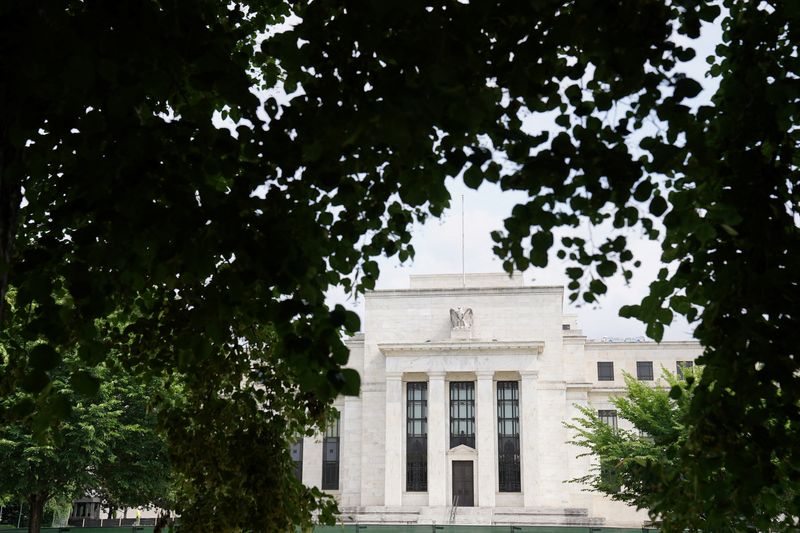Investing.com -- Further potential interest rate cuts by the Federal Reserve this year could help boost small-cap companies, but lingering uncertainty over the direction of the US economy may present near-term headwinds for these firms, according to analysts at Bank of America.
The Fed slashed interest rates by 50 basis points to a range of 4.75% to 5.0% on Wednesday and indicated that it would announce more cuts this year, signaling the beginning to an easing cycle aimed at shoring up the economy following a prolonged battle against surging inflation. Rates had previously been at a more than two-decade high for over a year.
Along with the first drawdown since March 2020, an updated "dot plot" of officials' policy forecasts showed that policymakers now expect the benchmark fed funds rate to dip to 4.25% to 4.5% by the end of 2024. This would suggest either another jumbo half-point rate cut or two smaller quarter-point cuts at the Fed's two remaining gatherings this year.
However, Fed Chair Jerome Powell stressed that the Fed was carrying out a "recalibration" of its rate policy and not instituting a "new pace" of drawdowns. He added that the rate-setting Federal Open Market Committee was not in a "rush" to slash borrowing costs.
Even still, the analysts predicted that the Fed will likely want to avoid disappointing investors by not unveiling sufficiently deep rate reductions at its coming meetings.
"Therefore, we now expect another 75 [basis points] of cuts in [the fourth quarter], and 125 [basis points] of cuts in 2025, for a neutral rate of 2.75-3%," the BofA analysts said in a note to clients. The neutral rate is the theoretical level at which borrowing costs neither help nor hinder economic activity.
They added that the prospect of more rate cuts could prove to be an "incremental positive for small caps" due to these firms' sensitivity to rates. A decreased policy rate could make borrowing costs cheaper, providing a particular boon for smaller companies who tend to hold floating-rate debt and have weaker balance sheets.
"But we still believe that improvement in small cap fundamentals is necessary for sustained small cap leadership to resume," the analysts said, adding that the near-term outlook for these groups is "tough."
"Small cap earnings are still in a recession [...], sales have disappointed and guidance remains below consensus," the analysts said. "Weakening macro[economic outlook] calls into question whether profits can stage the recovery investors had been expecting this year."
